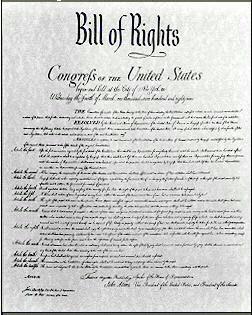 Huizen, 4th of April 1994
Huizen, 4th of April 1994
To the Secretary of Labor in the United States of America, Sir, On Eastern I watched your interview on CNN about the economic recovery of the United States. You said, you worried about the deterioration of the payment workers receive for their productive activities. You also said, that the economic process is ever more a matter of paper, meaning that the real economy becomes distorted by the artificial monetary structure in the world. Wall Street is the exponent of this process, and I share your views. In the Netherlands we can observe the same process as in the United States of America - and in the rest of Western Europe as well - where minimum wages and social benefits are under growing pressure. With Mr. Ross Perot, I do believe that the NAFTA agreement will damage the position of the workers subsequently, and the creation of jobs will bring no improvement of living conditions in the United States and anywhere else, except in Mexico perhaps. The reason I write this letter to you, is to try and stop this dangerous development of economic segregation, by getting the discussion started about the functional structure of money itself. As this subject in my country is still banned from public discussion, I published the file AMERICA.NO! on bulletin boards to get things in motion. Herewith I give you the right to make use of the view of a foreigner on the social structure of the United States. Maybe, when you can get public attention on this, you will be able to stop the ongoing impoverishment of numerous citizens in the United States and in the rest of the world as well. The question: 'To whom do you sell the products your industry generates', must become a key issue to keep up the purchasing power of workers and those who (for some reason) do not work at all.
Economists look for a solution for unemployment by trying to reduce the cost of labor, but I am convinced that this way of thinking leads to a dead end; especially when the global market reaches its boundaries of expansion. Japan is a good example. Purchasing power has to be regarded as a product of its own, and has to be distributed apart from, but if possible because of the availability of labor. Recently I asked your colleague in the Netherlands Jaques Wallage the questions: "How much capacity has the monetary system to generate work, expressed in hours of work in The Netherlands?" and "What development can be noticed during the last decades in the proportional share of income out of profit, labor, interest and social benefits as components of the Gross National Income?". I hope you will answer these questions in the interest of my country and of the United States of America. Maybe some problems can be solved with the answers. Awaiting your reply with respect,
Westkade 227 1273 RJ Huizen The Netherlands Phone: 00-31-35-5244141 Enclosed: AMERICA.NO! |
 Stichting Sociale Databank Nederland
Stichting Sociale Databank Nederland
E-mailadres: sdn@planet.nl
Internet site:
http://www.sdnl.nl/reich-1.htm